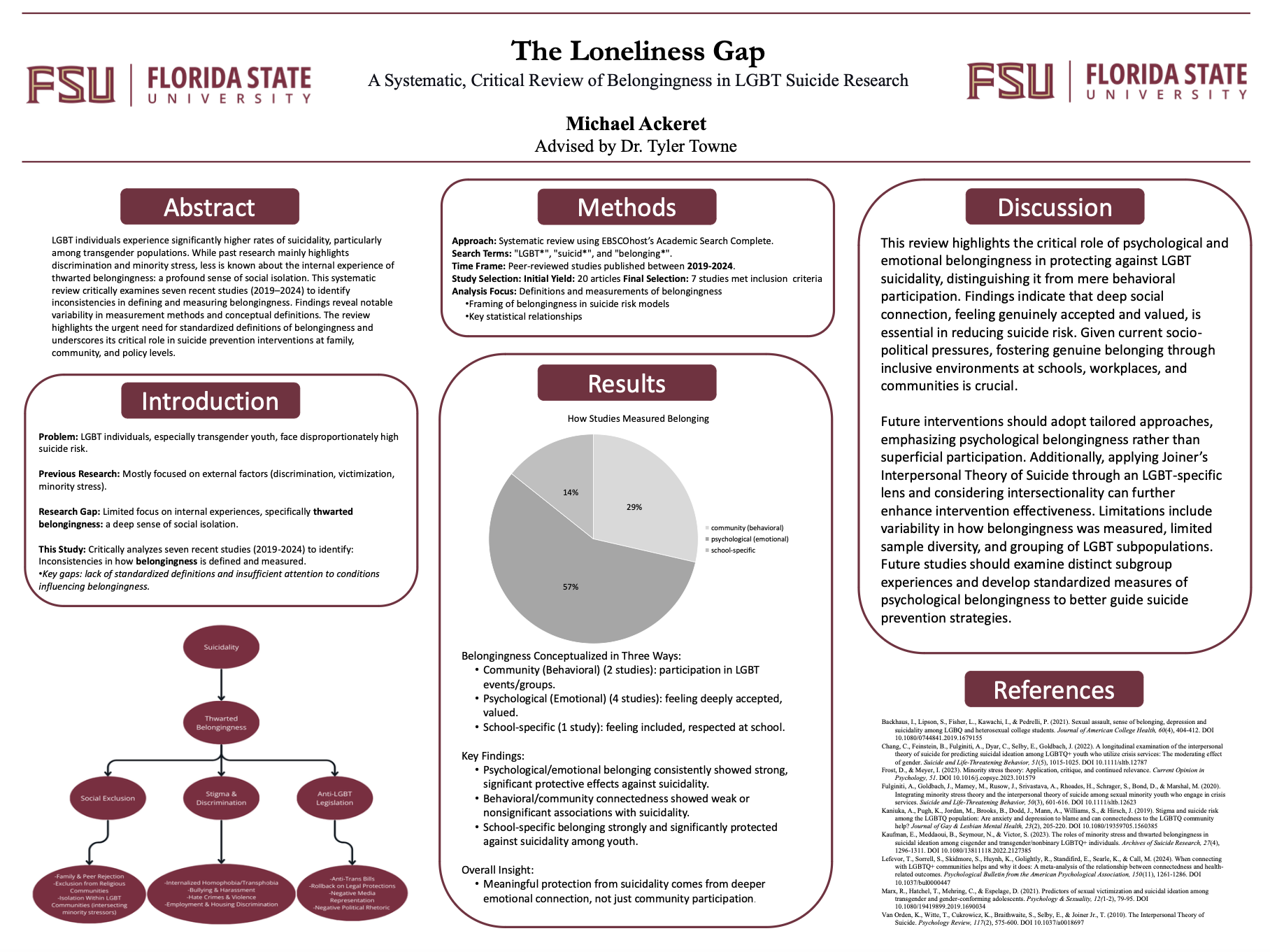Research Symposium Program - Individual Details
5th annual Undergraduate Research Symposium, April 17, 2025
Michael Ackeret

BIO
I’m a senior Psych major. I consider myself from St Pete, but my hometown is Wausau, Wisconsin. I work as a peer mentor at FSU and a mathematics tutor at GCSC. I’m moving to Philadelphia this summer to start graduate school at Lehigh University. My research focuses on mental health access and efficiency for marginalized communities. After the Master's program, I will immediately move on to obtain a PhD in Counseling Psychology. I hope for my research to inform progressive and inclusive legislature. I also want to train clinicians on cultural sensitivity and inclusion, as well as making access to mental health care available for everyone.
The Loneliness Gap: A Systematic, Critical Review of Belongingness in LGBT Suicide Research
Authors: Michael Ackeret, Dr. Tyler TowneStudent Major: Psychology
Mentor: Dr. Tyler Towne
Mentor's Department: Psychology Mentor's College: Florida State University Co-Presenters:
Abstract
LGBT individuals face disproportionately high rates of suicidality compared to their heterosexual and cisgender peers, with transgender individuals experiencing the highest risk. While previous research has extensively examined risk factors such as discrimination, minority stress, and social rejection, less attention has been given to the role of thwarted belongingness as a central mechanism influencing suicidality in this population. Using a systematic approach, this critical review evaluates inconsistencies in how belongingness is conceptualized and identifies key areas for improvement in future research. Seven peer-reviewed studies published between 2019 and 2024 were selected based on specific inclusion criteria and analyzed to compare how belongingness is defined, measured, and framed in suicide risk models. The findings reveal significant inconsistencies, with belongingness variously categorized as a predictor, mediator, moderator, or protective factor. Additionally, studies differed in their measurement approaches, assessing belongingness through community connection, school belonging, or general social inclusion. This review identifies key gaps in the literature, including the need for a more standardized approach to defining and measuring belongingness and greater attention to the conditions under which belongingness influences suicide risk. Findings suggest that suicide prevention efforts for LGBT populations should focus not only on reducing external stressors but also on actively fostering a sense of belonging through targeted interventions at the family, community, and policy levels.

Keywords: LGBT, Suicide Prevention, Belongingness

